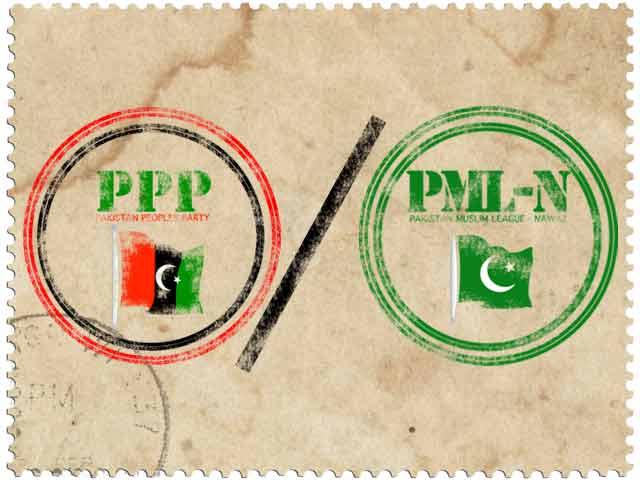ISLAMABAD:
Tensions between the Pakistan People’s Party (PPP) and the ruling Pakistan Muslim League-Nawaz (PML-N) deepened when the PPP leadership finally allowed its members to begin openly challenging the policies of the federal and Punjab governments after of having been constantly marginalized on key issues. on Mondays.
Amid allegations of unilateral decision-making and broken agreements, sources within the PPP revealed that the party leadership had allowed its central and provincial leadership to criticize the PML-N’s governance strategies at the Center and in Punjab.
Party insiders said the leadership’s recent directive to go on the offensive was aimed at sending a clear signal to the PML-N that the PPP would no longer remain a silent spectator. Breaking with its previous stance of moderation, the PPP had now decided to publicly call out what it considered flawed and ineffective policies, they added.
The decision to take on the PML-N came on the heels of open criticism from PPP chairman Bilawal Bhutto Zardari, who lashed out at the PML-N’s style of governance and accused it of violating agreements, including those related to the management of the water, new construction of canals from the Indus River and flood rehabilitation.
Subsequently, PPP spokesperson Shazia Marri had issued a stern warning to the PML-N on Sunday, warning that continuing to sideline the key ally of the ruling coalition on critical national issues could lead to the collapse of the PML-N-led federal government. .
The PPP spokesperson did not mince words in stating that the PPP, being an ally of the federal government, could suddenly overthrow the PML-N. Marri criticized the federal government’s decision to establish the Pakistan Maritime and Ports Authority without the consultation of the PPP or the provincial government.
“Neither the Sindh government nor the PPP had confidence in this decision,” Marri said. “The day we withdraw our support, this government will cease to exist. Perhaps the PML-N will not fully realize this,” he added.
The PPP’s grievances date back to the post-election alliance, which aimed to ensure stability in a restive political landscape. However, the partnership has been marred by repeated disputes, with the PPP claiming that the PML-N does not consult the ally on important issues or allow it space in Punjab.
The PPP, a key ally of the ruling coalition, has repeatedly expressed discontent with the government’s style of governance and its failure to deliver on promises made to the provinces. The party had also highlighted the failure of the federal government to convene meetings of the constitutionally mandated Council of Common Interests (CCI), a key forum for resolving inter-provincial issues.
The growing mistrust deepened further during a recent PPP meeting where, according to an official PPP statement, senior leaders had expressed dissatisfaction with the federal government’s progress on its commitments. Despite multiple meetings and assurances from Deputy Prime Minister Ishaq Dar, the PPP remained unconvinced of the PML-N’s sincerity in addressing its concerns.
While the PML-N downplays the tensions, the PPP’s open opposition reflects that all is not well between the two sides. Political analysts believe the PPP move is aimed at putting pressure on PML-N governments to adopt a more inclusive decision-making process.
Last year, the PPP had only a token participation in the budget session of the National Assembly after the ruling party did not bother to address the party’s reservations on the budget. The symbolic participation in the budget session came only after Deputy Chief Minister Dar rushed to Bilawal’s chamber, requesting the party to attend the budget session.
However, the PPP chairman only sent three of his members (Naveed Qamar, Khursheed Shah and Ijaz Jakhrani) to represent the PPP in the session, as the party felt that the PML-N not only deviated from its post-election agreement but began taking the PPP. for granted. Since then, both parties have tried to resolve their differences but have not been able to maintain a fluid relationship.
Although the PPP has threatened to withdraw its support on different occasions, it has not done so because it did not want to make any decision, which could lead to growing political and economic instability.
The PPP is apparently running out of patience, but political commentators believe that it will not be able to make any decision until the powerful players decide to change the equation on the political board.
Several PPP leaders were contacted to officially comment on the issue but refrained from doing so. As usual, the Minister of Information did not share the government’s opinion on the situation.




